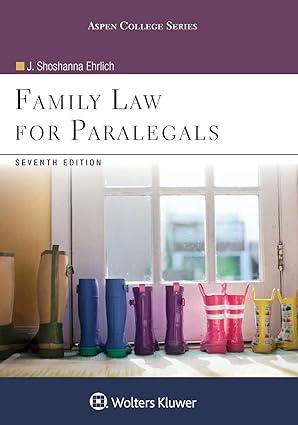This case presents a constitutional question never addressed by this Court: whether a statutory scheme adopted by
Question:
This case presents a constitutional question never addressed by this Court: whether a statutory scheme adopted by the State of Virginia to prevent marriages between persons solely on the basis of racial classifications violates the Equal Protection and Due Process Clauses of the Fourteenth Amendment. . . .
In June 1958, two residents of Virginia, Mildred Jeter, a Negro woman, and Richard Loving, a white man, were married in the District of Columbia pursuant to its laws. Shortly after their marriage, the Lovings returned to Virginia. ... [A] grand jury issued an indictment charging the Lovings with violating Virginia's ban on interracial marriages. ... [T]he Lovings pleaded guilty to the charge and were sentenced to one year in jail; however, the trial judge suspended the sentence for a period of 25 years on the condition that the Lovings leave the State and not return to Virginia together for 25 years. He stated in an opinion that:
"Almighty God created the races white, black, yellow, malay and red, and he placed them on separate continents. And but for the interference with his arrangement there would be no cause for such marriages. The fact that he separated the races shows that he did not intend for the races to mix."
After their convictions, the Lovings took up residence in the District of Columbia... [T]hey filed a motion in the state trial court to vacate the judgment and set aside the sentence on the ground that the statutes which they had violated were repugnant to the Fourteenth Amendment.... [T]he ... judge denied the motion ... and the Lovings perfected an appeal to the Supreme Court of Appeals of Virginia.....
Questions:
1. On what grounds did the state of Virginia seek to justify its miscegenation laws?
2. Why did Virginia claim that its miscegenation laws did not "constitute an invidious discrimination based on race"? Why did the Court disagree with Virginia on this point?
3. Based on your reading of the text, who generally has the authority to regulate the marriage?
4. In striking down Virginia's miscegenation law, the Court relies on two clauses of the Fourteenth Amendment. Identify these clauses and explain how the Court used them to invalidate the law.
5. How does the Court characterize the right to marry?
Step by Step Answer:






